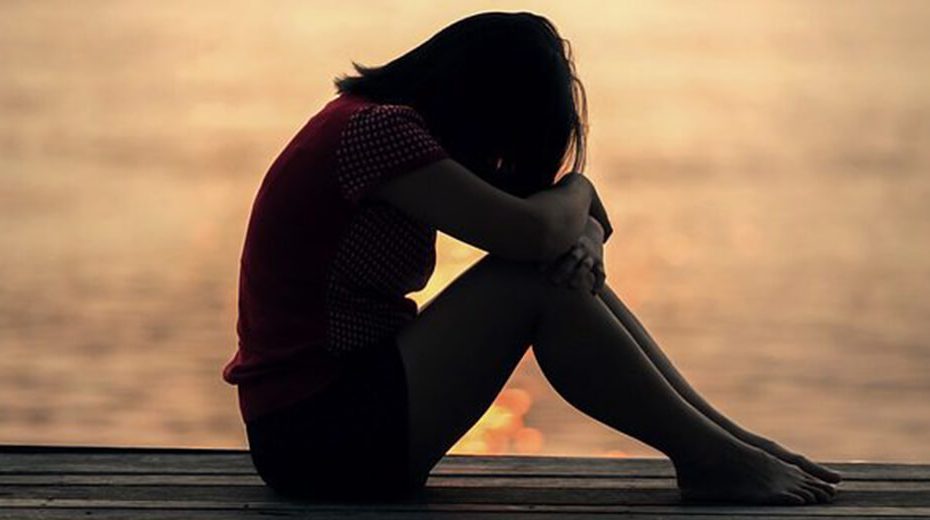Being a parent in this day and age can be particularly worrying when it comes to kids mental health.
We hear about many young people who are struggling with mental health illnesses.
It can make parent’s hyper vigilant, and want to pave the way for our offspring and protect them so that no harm can come to them. However, this may be doing them a disservice by not allowing them to fail or feel.
If we don’t begin to change, we are in danger of creating a generation of young people who will not develop any resilience and potentially enter adult life unprepared and unable to cope with the stresses that come with the next phase of their life.
It’s OK to not always be OK- Coping with Stress & Anxiety

It is important to give your child the message that its ok to not always be ok. Life is full of stressful events and challenges. When your child is feeling stressed or anxious you may want to take the time to discuss with your child how some stress can actually help people cope better if they can master it.
Great reference points are sportspeople or actors who need pressure to help them perform to their best ability. Your child needs to understand that anxiety is not dangerous and it is something that he or she can cope with. Our children look to us for reassurance and guidance so it is not helpful for them if you are constantly over reacting or responding negatively and manically in a stressful situation. Try and show them that it’s safe to explore the world, to make mistakes and to get things wrong and that we can’t always control the situations we may find ourselves in.
It can be useful to dissect a scenario that is making your child anxious with them. For example, ask them what is the worst thing that could happen if… you have an exam at school and you fail, what’s the worst thing that could happen? What happens next, how will it affect them? We learn that you need some extra help in that subject and get you the support you need and that it was OK to fail as we learned something new.
Solving Friendship Conflicts
Try to avoid fighting your child’s friendship battles for them. If we get involved in our child’s friendship conflicts we are actually communicating to them that we do not think that they are capable of resolving it themselves. We are also not giving them an opportunity to resolve conflicts. We are giving them the message that they can do and say what they want without consequences to their actions because mummy will sort it out for them.
Limiting Social Media and Screen Time
Admittedly, social media is contributing to a much more stressed out generation of children and parents. We are now socially connected at all times and they can never really switch off. I remember coming home from school and playing in my garden for hours, my sisters and I got excited when the home phone rang, hoping it was for one of us, especially during the washing up!
Encourage your child to stop screen time at least an hour before bedtime and to leave their phones charging downstairs when they go to bed.

You can also help them use their phone to promote good mental health by encouraging relaxation or meditation with the plethora of very good apps on the market.
Family Time & Chores
Encourage your children to do some chores at home to encourage better interaction and time away from screens. Too often, I see plenty of young people just drop their clothes on the floor expecting someone else to pick up after them. By allowing this type of behaviour you may be contributing to creating a self-absorbed individual who is unable to consider the needs and expectations of others. Asking teenagers to clean up after themselves actually makes them more responsible and accountable.
Not being taught the skills of every day life does not prepare them to function well as adults and also gives them the message that they are more important then the people who clean up after them – this can make them self centred and egocentric and won’t help them become a compassionate and kind member of society.
When & Where To Go For Help
All of this aside, it is important as a parent to be aware and able to identify signs that your child is struggling and may need extra support from you or someone outside of the family.
Look out for changes in eating and sleeping patterns and obsessive or ritualistic behaviour.
Try and keep a look out for any signs of bullying at school, taking of alcohol or drugs or self-harm.
Other warning signs to consider are a lack of interest in things they once enjoyed doing and if they seem isolated or withdrawn, spending far too much time alone in their bedrooms or on social media.
Keep Calm, Listen & Praise
Finally and most importantly, try to be calm and keep the channels of communication open with your child. If your child wants to talk to you, show them that you are really listening and try to respond in a way that your child will hear. Your child may be testing you by only telling you a small part of what is really happening with her. Try to begin your sentences with, ‘I would like you to make your bed’ instead of ‘you never make your bed, you are so lazy’.
As with all people generally, children respond well to thanks and praise if they are eight or eighteen.
Remember No One Is Perfect – Be Kind To Yourselves Too
In the same way you shouldn’t believe every Faecbook or Instagram post you read is real, be aware of parents who always tell you that their children or relationship is perfect and never share difficult issues going on in their lives.
Remember, what you see on social media is just a façade and in real life, we are all vulnerable and no one is perfect!
There are no perfect parents, we all make mistakes, we are continuously learning and can only do our best, its important to ask for help when needed and support from each other.
So give yourselves some self compassion and remember no one is judging you.
No one will parent exactly the same way as you and you will never parent exactly the same way as someone else. So lets all support each other and remember we are only human and we are all trying to do the best we can for the sake of our children and ourselves.
Wednesday October 10th is World Mental Health Day. The WHO say that "half of all mental illness begins at the age of 14'. You can find out more about how you can support or get involved with the day here: http://www.who.int/mental_health/world-mental-health-day/2018/en/
